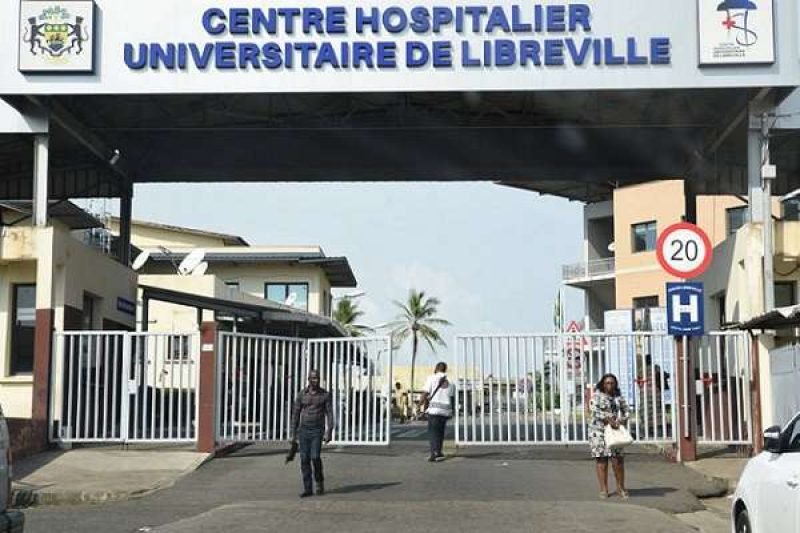Space not available
Reserve this advertising space
Selected ad format
The file format is not recognized
Click here for
upload an ad
Click here to download
an announcement
Here drag and drop or
upload an ad
Send the ad up to 8 days after payment
A link will be sent to you by contact@via-agency.media
Reserved space
Announcement transmitted
Reference

For the President of the Republic, the country's development, particularly the implementation of the Transformation Acceleration Plan, depends on the good health of the Gabonese people. Several issues remain urgent, such as the national measles vaccination campaign, the development of the National Health Development Plan 2022-2027 (PNDS), and the National Health Forum.
Space not available
Reserve this advertising space
Selected ad format
The file format is not recognized
Click here for
upload an ad
Click here to download
an announcement
Here drag and drop or
upload an ad
Send the ad up to 8 days after payment
A link will be sent to you by contact@via-agency.media
Reserved space
Announcement transmitted
Reference
Gabon's health policy is structured around nine pillars. These are the regulatory framework, intensifying the fight against Covid-19, governance of health structures, improving healthcare provision, drug management, operationalizing health departments and regions, management of health human resources, developing preventive medicine, and strengthening the provision of care in specialized establishments.
The geographic information system plays an important role in Gabon's health information system. The use of GIS as an epidemiological research tool plays an important role in the implementation of the Gabon E-health program, which aims to improve governance and optimize resource allocation.
 Gabon is subdivided into 10 health regions and 51 health departments. The health division is modeled on the administrative division except that the Estuaire province has two health regions: the Libreville Owendo Health Region (RSLO), itself subdivided into four health departments, and the Western Health Region (RSO). Currently, the national health system is based on three sectors that coexist, without any formal relationship of complementarity. These are: – the public sector – civil and military; – the parapublic sector of the National Social Security Fund (CNSS); – the private sector – for-profit, non-profit and traditional.
Gabon is subdivided into 10 health regions and 51 health departments. The health division is modeled on the administrative division except that the Estuaire province has two health regions: the Libreville Owendo Health Region (RSLO), itself subdivided into four health departments, and the Western Health Region (RSO). Currently, the national health system is based on three sectors that coexist, without any formal relationship of complementarity. These are: – the public sector – civil and military; – the parapublic sector of the National Social Security Fund (CNSS); – the private sector – for-profit, non-profit and traditional.
In terms of infrastructure and equipment, political direction has long been dominated by the development of curative care structures. Currently, the country has approximately 959 care structures, from health centers to national hospitals, across all health sectors. There are nearly 700 first-contact structures between the population and the health system (dispensaries, infirmaries, and treatment offices) and 5 national hospitals. The number of beds is estimated at approximately 4,000 for the entire health system, representing a ratio of 25 beds per 10,000 inhabitants. The work launched in health centers is included in the Transformation Acceleration Plan (PAT).
Space not available
Reserve this advertising space
Selected ad format
The file format is not recognized
Click here for
upload an ad
Click here to download
an announcement
Here drag and drop or
upload an ad
Send the ad up to 8 days after payment
A link will be sent to you by contact@via-agency.media
Reserved space
Announcement transmitted
Reference
This involves strengthening the performance of access to and provision of care, the technical platforms of 2nd and 3rd level hospital structures, the monitoring of emerging and infectious diseases, deploying diagnostic centers in all provinces and rehabilitating the former Owendo Children's Hospital, with a view to transforming it into an Institute of Infectious Diseases.
The expected result is therefore the development of a National Health Development Plan 2022-2027 (PNDS) which aims to translate the concrete actions of the new health policies introduced by the Head of State within the framework of the PAT and which is built on the symmetry of the two dominant poles of Gabonese medicine.
The government intends to truly take into account health insurance and social security, particularly for vulnerable people. Traditional medicine could be integrated into the 2022-2027 National Planning and Development Plan (PNDS).
The government has also created a fund to assist the most vulnerable during the economic and health crisis caused by COVID-19. The President of the Republic has allocated 2.1 billion CFA francs ($3.4 million) to the fund to finance the health expenses of individuals and families not affiliated with the National Health Insurance and Social Guarantee Fund for six months. Part of the fund, 250 billion CFA francs ($410 million), has been used to finance exceptional social and economic measures, such as financial aid for businesses, partial coverage of salaries, a rent freeze for the poorest, and free public transport.
Space not available
Reserve this advertising space
Selected ad format
The file format is not recognized
Click here for
upload an ad
Click here to download
an announcement
Here drag and drop or
upload an ad
Send the ad up to 8 days after payment
A link will be sent to you by contact@via-agency.media
Reserved space
Announcement transmitted
Reference







